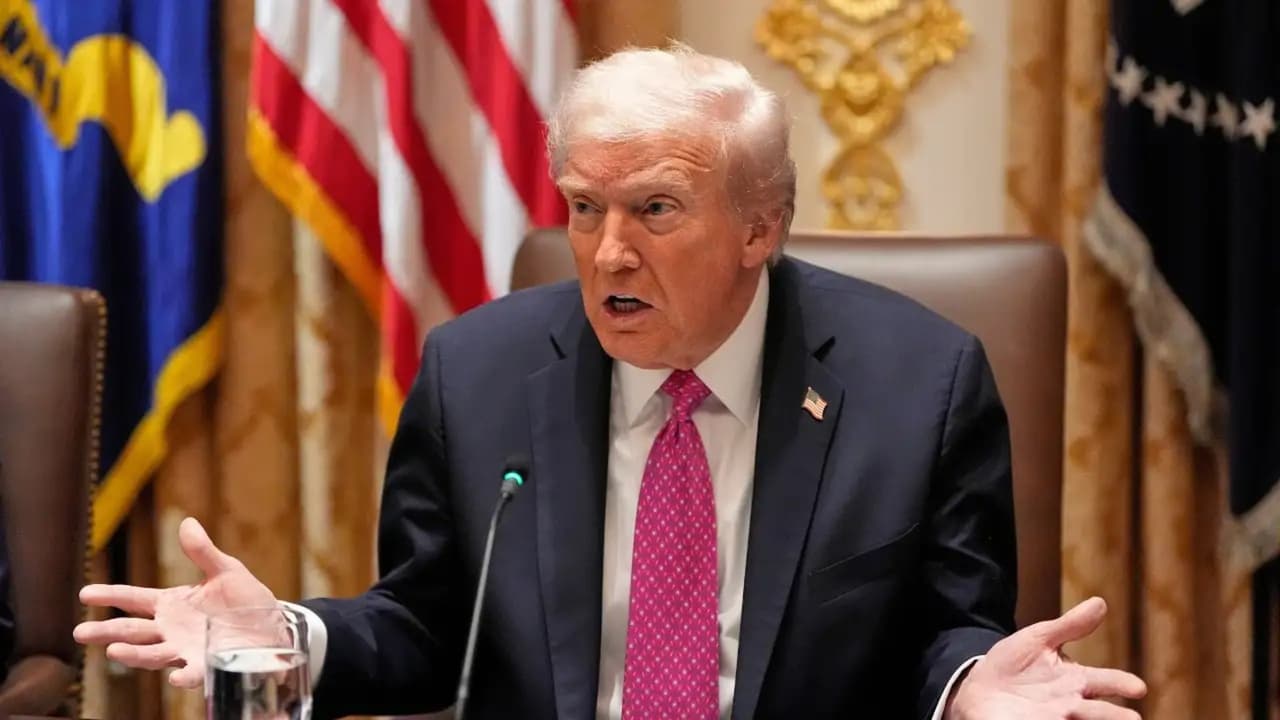Donald Trump threatened ‘massive tariffs’ on India if it does not stop buying Russian oil, saying Prime Minister Narendra Modi assured him a cut. The dispute adds strain to US-India trade relations amid existing 50 % tariffs on Indian exports.
US President Donald Trump has once again warned that India could face ‘massive tariffs’ if it continues importing oil from Russia. Speaking to reporters aboard Air Force One, Trump claimed that Indian Prime Minister Narendra Modi told him India would stop buying Russian crude.
He said, “PM Modi… told me, ‘I’m not going to be doing the Russian oil thing.’ But if they keep doing it, they’ll be paying massive tariffs.”
When asked about India’s denial of any such promise, Trump responded, “But if they want to say that, then they’ll just continue to pay massive tariffs, and they don’t want to do that.”
India rejects claim and justifies its energy policy
Earlier, on October 16, the Ministry of External Affairs (MEA) of India denied Trump’s claim of any call with PM Modi on Russian oil, saying it was not aware of any phone call or conversation between Modi and Trump in which such a commitment was made. MEA spokesperson Randhir Jaiswal said India’s energy policy is independent and guided by securing stable prices and reliable supplies for its consumers.
India has emphasised that its imports from Russia are driven by economic and logistical reasons, especially given discounted rates, and that any decision to reduce such imports would be gradual.
US tariffs and the stakes
Donald Trump’s administration imposed 50 percent tariffs on select Indian exports, citing India’s purchase of Russian oil and linking it to US efforts to sanction Russia’s war in Ukraine.
The US views oil revenues from Russia as funding its military effort and sees India’s imports as undermining global pressure on Moscow.
Meanwhile, reports say India remains the largest buyer of Russian seaborne oil, representing around one-third of its crude imports.
What this means for both sides
For the US, the threats reinforce its stance that countries must stop buying Russian energy if they want trade benefits. For India, energy security and cost control are major concerns; halting or cutting Russian oil imports overnight is neither simple nor practical in the short term.
The diplomatic strain could impact broader US-India cooperation in trade, defence and energy. Reports indicate this dispute is among the most serious in decades between the two countries.
India may attempt to diversify its oil sources (for example from the US), but replacing large volumes of discounted Russian oil will take time.
The US could either maintain or increase the tariffs if no visible reduction in Russian oil imports occurs. India may push back, arguing its policy is guided by national interest and global supply dynamics.
Energy trade decisions are deeply tied to national security, economics and diplomacy. A clash over oil imports and tariffs shows how global energy flows, geopolitics and trade policies intersect. For everyday consumers and businesses, this could translate into changes in export markets, energy prices and trade relations.
(With inputs from agencies)
